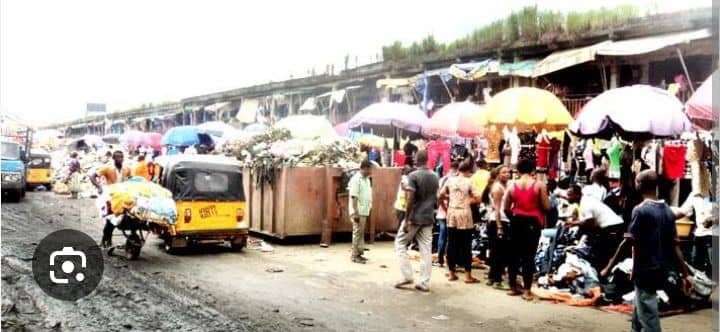80% of Aba’s micro-enterprises lack access to formal credit: Collaborative lending models and movable asset financing could unlock growth for Abia’s “Japan of Africa” MSMEs
In the bustling streets of Aba, Abia State, lies a tale of untapped potential and unrelenting resilience. The city, fondly referred to as the “Japan of Africa,” is home to a plethora of micro-enterprises that form the backbone of the local economy. However, behind the vibrant markets and industrious entrepreneurs lies a harsh reality: 80% of these micro-enterprises are denied access to formal credit, stifling their growth and condemning them to a cycle of poverty. The dreams of these entrepreneurs, who toil tirelessly to make ends meet, are constantly deferred due to the lack of financial support.
As we delve into the world of Aba’s micro-enterprises, we are met with the poignant stories of men and women who have mortgaged their futures, sacrificed their comforts, and invested their life savings into businesses that struggle to stay afloat. The absence of formal credit has transformed their entrepreneurial journeys into grueling marathons, where every step forward is accompanied by the looming specter of financial uncertainty. It is against this backdrop of struggle and perseverance that we explore the transformative potential of collaborative lending models and movable asset financing. Can these innovative solutions unlock the growth potential of Abia’s MSMEs, or will the doors of opportunity remain forever shut?
Key Needs of the Masses in Abia State
Abia State, renowned for its entrepreneurial vigor, faces pressing socio-economic challenges that demand urgent intervention. With a very high unemployment rate and youth unemployment exceeding 22%, job creation remains a critical priority. Over 80% of SMEs, particularly in Aba’s leather and garment clusters, lack access to formal credit, stifling growth in a sector that employs 70% of the population. Prior to the coming of Governor Otti, Infrastructure deficits exacerbated these issues: for instance, poor power supply (averaging 4 hours daily in Aba) and dilapidated roads inflated production costs by 40%, while flooding caused by industrial waste displaced 20,000 residents annually. Additionally, only 18% of SME owners have formal financial training, leading to high loan default rates, and Aba-made goods struggle to penetrate regional markets due to logistics bottlenecks and limited e-commerce integration.
Collaborative Opportunities for Financial Institutions and Local Businesses
Otti has harped times without number the role and strategies Financial institutions (FIs) and local businesses can deploy to drive transformative change by aligning resources with Abia’s unique needs. Reviving Aba’s industrial clusters through partnerships with institutions like SME Banks could unlock zero-interest loans for machinery upgrades, addressing the sector’s reliance on outdated tools. Digital financial inclusion initiatives, such as deploying mobile banking agents in rural LGAs like Umuahia North, would serve the 65% unbanked population. Modernizing Ariaria International Market via digitized payments and inventory systems, piloted through platforms like Sterling Bank’s Switch, could streamline operations for 10,000 traders. Green manufacturing incentives, including solar energy adoption and waste recycling programs, would reduce costs and environmental harm, while youth skills development partnerships with FIs like GTBank could train 5,000 youths annually in fintech and e-commerce.
Ongoing Initiatives in Abia State
Several collaborations already showcase progress. The Abia State Government’s Aba Industrial Innovation Park (AIIP), backed by a N10 billion Afreximbank partnership, aims to centralize SMEs for efficiency. National Directorate of Employment (NDE) trained 1,500 youths in leatherworks. While Interswitch onboarded 3,000 SMEs onto its payment platform, and Unity Bank funded a N150 million solar project for 50 tanneries. These efforts highlight the potential of sustained partnerships.
Governor Otti and MSMEs
Governor Alex Otti prioritizes infrastructure, innovation, and policy reforms to accelerate growth. He has accelerated infrastructure programs and projects, this has crashed logistics costs. Otti favours A multi trillion naira Abia SME Growth Fund, pooling resources from FIs and diaspora bonds, that could offer 1% interest loans to SMEs. He’s that establishing tech hub with partners like Flutterwave will position Aba as a global e-commerce player. We can report confidently that Dr Alex Chioma Otti OFR has his eyes incentives for green practices could transform Osisioma Industrial Layout into a sustainable zone. Digitizing the MSMEs Bank and advocating for CBN reforms to accept movable assets as collateral would further ease credit access.
Other Quick Wins that Otti is eyeing for Immediate Impact
Short-term projects can deliver visible results. Expanding Ariaria Market’s fiber optic project and launching a much much broader unified digital payment system by Q4 2026 would modernize commerce. Distributing 4,000 zero-cost solar panels under a “One SME, One Solar Panel” initiative, he believes will halve energy costs.
Conclusion
Abia’s path to prosperity hinges on collaboration between FIs, businesses, and government. By closing infrastructure gaps in a sustainable way, boosting financial inclusion, and leveraging technology, Governor Otti is unlocking the state’s SME potential. Data-driven policies, paired with scalable partnerships, is transforming Abia into a model of sustainable, inclusive growth.

Dr Chukwuemeka Ifegwu Eke writes from the University of Abuja/Yakubu Gowon University Nigeria.







